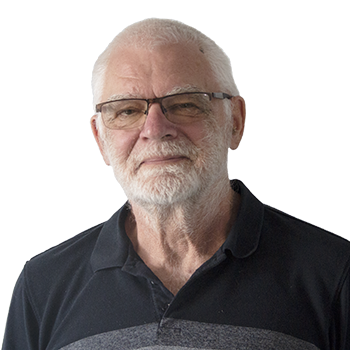I visited an old man in the hospital. I hope it’s okay to call “Les” old because he is twenty years my senior. I suspect that for my entire life, anyone two decades older than me has been old.
Being old is not a negative way of measuring any aspect of Les. He had fallen and damaged his hip, and it was decided that his required care as he healed would be more than he could receive in his home. He had already been hospitalized two weeks when I visited. There was talk of releasing Les the next day, but he wasn’t convinced that he was ready.
Les spent much of our time together telling me of the good people around him. His wife’s family were so supportive, so generous. The hospital staff was caring, compassionate and gentle. His doctor, even though he was only fourteen, was wise and thoughtful. In fact, the doctor and his care team arrived to meet with Les while I was still with him. I immediately stood to leave, but the doctor assured me that my visit was also important, and that his team would wait. Perhaps there is wisdom at fourteen.
We spent time laughing. Les told me about the gentleness of the staff as they had bathed him, “they treated me like a baby.” I asked if he thought I could receive a bath as well, and he roared. I asked him how many years he had left in him, and he chuckled, “Somebody told me I should try for a hundred. Not sure I’ll make it.”
In fact, ninety-one years ago Les was born in a tent in northern Manitoba. His colourful life contains many hard chapters. Now, he sat in his wheelchair, looked into my face and radiated peace and contentment. I am blest to have been his friend for thirty years.
As I left, I threaded through the waiting care team. I realized that my visit had been life giving for me. The sun was a little brighter, a little warmer, when I stepped outdoors. It was a good day to be alive.
On the journey home, I thought more about the striking difference, between folks in similar circumstances that present hopefully, as opposed to those who can’t access that hope. It’s certainly not a black and white line, rather a continuum. But it is significant to take a measure of my remaining spiritual/emotional energy as I walk away from such an encounter. ”Is it ever good to be here!” versus “How soon can I slip away?”
As I followed that thread of thought about emotional/spiritual energy, I concluded that every time someone says something negative about another person, that comment is always most telling of the one commenting. That was the case of the many folks that I counselled in my ministry, that is certainly the case for me.
If I point out to someone, or to a third party, the shortcomings that someone exhibits, that is always a comment on my own flagging emotional energy, a comment on my own shortcuts to understanding another’s actions or words. When I try to point out exceptions, when I try to come up with legitimate reasons why I should be critical of another, it always leaves me feeling smaller, less. On the other hand, when I encourage, bless, affirm, well, the sun gets brighter.
A cousin recently died, a few years younger than me. Cancer had moved into his body slowly but relentlessly. But Buck decided, from early on, that he would live honestly and openly, would celebrate the time that he had, would have open conversations about that journey with family and friends, and would celebrate the time he was given. “Why me?” questions were replaced with “Why not me?” Celebration for Buck meant writing poetry, singing, telling stories, and hugging folks. Buck’s death journey allowed a whole swack of important conversations, created space for a whole swack of feelings to be expressed and processed, uncovered paths to joy in the most difficult of circumstances.
The peals of laughter in the hospital room with Les would have been equally joyful with Buck.
Television shows sometimes suggest a premise of “follow the money.” More important, perhaps, is to follow the peace, the contentment, follow the hope.


